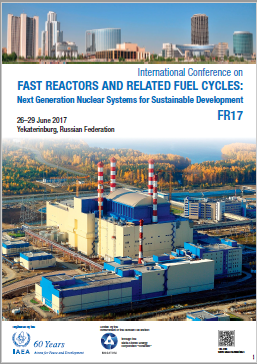Speaker
Mr
Vladimir Usanov
(JSC «SSC RF-IPPE», State Corporation “ROSATOM”)
Description
Ability of nuclear power to meet the requirements of sustainable development is a critical point for public acceptance of the energy technology and its further development. The method for assessment of the nuclear energy system (NES) compatibility with the requirements of the UN concept of sustainable development was developed in the IAEA within the activities of the INPRO international project. The approach discussed in the paper is aimed at decreasing the uncertainty of the method in assessing NES sustainability in order to duly arrange the NESs from those at the low limit of sustainability up to advanced systems with much better sustainability features.
It is shown that the integral index determined with the use of common approaches of the multi-attribute theory may provide a measure of the NES sustainability to be used for quantitative comparison of sustainability of NESs based on different technical and institutional solutions. The value of the index depends on the reaching by an assessed NES of certain key developments in the seven subject areas: economy, nuclear safety, resource supply, waste management, non-proliferation, public acceptance and international cooperation.
It is shown that assessment of the NES based on OTFC with thermal reactors and UOX fuel on a large time horizon will be characterized by a low value of the sustainability index in case of lack of natural uranium resource and continued accumulation of spent nuclear fuel and plutonium therein. The index radically increases due to synergistic use of thermal and fast reactors with closed nuclear fuel cycle. This effect can be gained within the country that has mastered both technologies or in the system in which user country receives services on closed NFC from supplying country. It is noted that the model needs further development in order to take into account more factors related to the sustainability notion.
Country/Int. Organization
Russia
Author
Mr
Vladimir Usanov
(JSC «SSC RF-IPPE», State Corporation “ROSATOM”)
Co-authors
Mr
Andrei Andrianov
(INPE NNRU MEPhI)
Mr
Stepan Kviatkovskii
(JSC «SSC RF-IPPE»)

